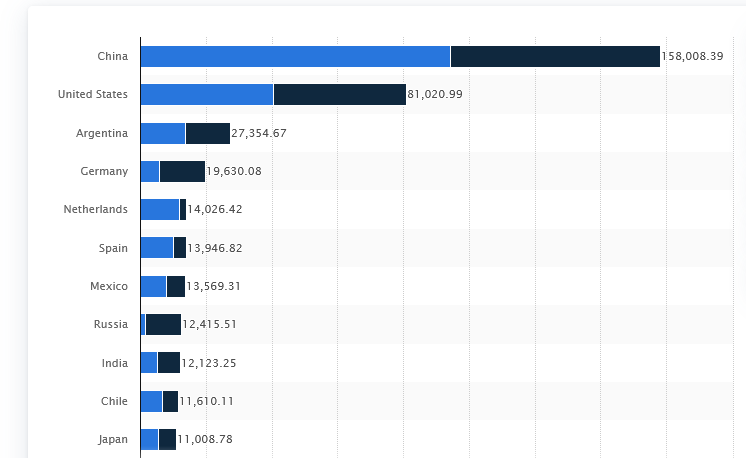The Supreme Court ruled on Monday that the Trump administration may fire more than half of the Department of Education’s workforce — mass terminations that, in Education Secretary Linda McMahon’s words, are “the first step on the road to a total shutdown” of the entire department.
The Court’s decision in McMahon v. New York, was handed down on the Court’s “shadow docket,” a mix of emergency motions and other expedited matters that the justices often decide without full briefing or oral argument. As is often the case in shadow docket decisions, none of the Republican justices explained their decision.
This is, in my opinion, and in line with most lawyers, 100% unconstitutional.
The McMahon decision is particularly unnerving because it suggests that President Donald Trump is allowed to “impound” federal spending — unilaterally refusing to spend money or to continue federal programs that are mandated by an act of Congress. While McMahon does not explicitly authorize impoundment, it allows the Trump administration to fire so many federal workers, in so many key roles, that the practical effect is to cancel entire federal programs.
Most of the creep of imperial presidency has been Congress giving its powers away: war acts which make it so the president can go to war without Congress, for example, or giving the President tariff authority (which Trump has misused, pretending everything is “national security”) and so on. Some have been unilateral grabs, such as using “signing statements” to change the clear intend of laws.
But this is a Presidential grab that the Supremes are waving thru. Even if they later rule that some stub of the Education department must remain, it’s clearly allowing the President to over-ride spending that Congress has mandated. I am unaware of any reasonable reading of the Constitution that allows this: the President is to execute Congress’s directives and does not have the authority to say “nah, we’re just not going to do that any more.”
Especially of interest here is that the Republicans didn’t bother to explain the ruling and didn’t give it a full trial. They know it’s completely indefensible on legal grounds, and they aren’t even going to try.
Ever since Citizen’s United I have told Americans to get out if they can and if not to prepare for horrific times. Children, we are now at the start of the collapse. Before this it was mostly gradual, but this is the real thing.
I mention Citizen’s United (which allowed unlimited cash into US elections under the proposition that money is speech) because, of course, smashing the Department of Education while it’s something that Christofacists want, so they can ban books and write fantasy textbooks and fire teachers and Professors for saying things like “gay sex might not be bad,” or “American slavery was terrible” and so on, it’s also about privatizing as much of the education system as possible.
Remember that Trump’s main act, amidst all the Kabuki, was his budget, which slashed four trillion in taxes from rich people while cutting health care for poor people to partially pay for it. Trump’s #1 priority, as per his actions, is to make the rich, richer. (His tariffs, while real, have been TACO: Trump chickens out when rich people start screaming.)
Make the public education shit for poor people, let the middle class have vouchers for some shit “charter” school and the upper class, as always, will send their kids to elite private schools.
A Republic, If You Can Keep It – Benjamin Franklin
Kept it for almost 250 years, but if this stands, if Congress loses its last real power, it’s over. A Republic is something rather specific, a divided form of government. And if one of the three branches has no effective power left, it’s not a Republic, especially since the Supremes, in other orders, are gutting the Judiciary’s power. The end of nationwide injunctions is particularly instructive. And let’s not forget the President’s Gestapo force, ICE, arresting Judges who try to interfere with immigration snatches.
Nothing is over till it’s over. But no one with sense would offer good odds that the US is going to come out of this era as the sort of place anyone with sense would want to live. Say what you will about China, but it’s light authoritarianism and actually delivers prosperity. At this point everyone not in the top 1% is seeing declines in wealth in America, plus you’re losing your civil liberties (citizenship revocation is very likely), plus you’re losing your Republic.
I consider it my duty to try and give a clear picture of the world to my readers so they can make good decisions. Other than the necessity of eating and not dying of exposure, it’s why I write. So… If you can get out. Get out. If you can’t, make preparations for Hell.
If you’ve read this far, and you read a lot of this site’s articles, you might wish to Subscribe or donate. The site has over over 3,500 posts, and the site, and Ian, take money to run.

 So, the Supremes have decided, without even bothering to write an opinion, that the Department of Education can be massively reduced without Congressional approval:
So, the Supremes have decided, without even bothering to write an opinion, that the Department of Education can be massively reduced without Congressional approval:
 How stupid do they think everyone is?
How stupid do they think everyone is?